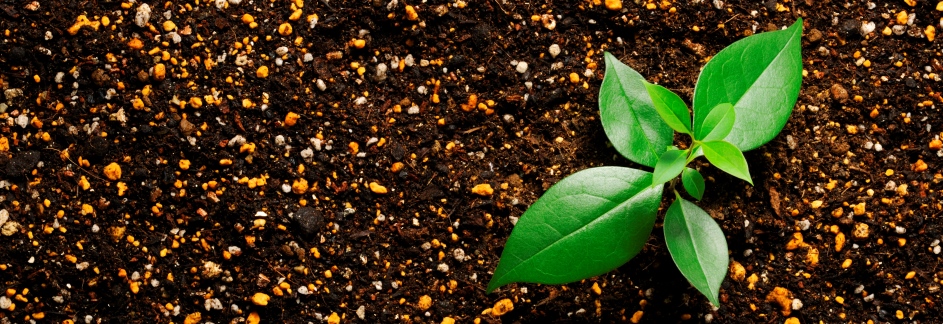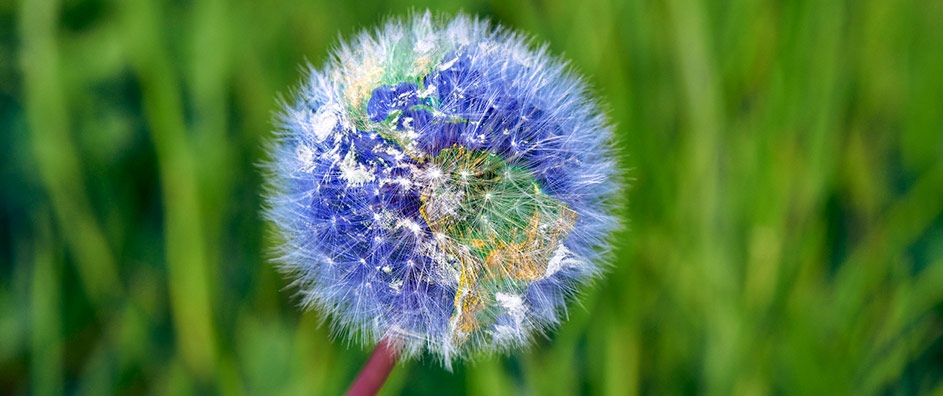The views expressed in our content reflect individual perspectives and do not represent the authoritative views of the Baha'i Faith.
Two seasons run simultaneously through the days of my life.
The first season always matches the calendar on my desk. I am sitting at my computer in Greenville, South Carolina, on a chilly winter day. I prepared for the cold in the fall by picking the remaining fruits from our persimmon tree, gathering the last bouquet of chrysanthemums for the dining table, mulching the roses, and whirling a final crop of basil leaves into a batch of tasty pesto to freeze for the winter.
Outside our house, cold winds blow with increasing ferocity across the garden, stealing acorns from tall oaks and littering the ground with swirls of dead leaves. A few hardy plants still hold their heads high, but fingers of frost creep a little closer each night, intent on withering leaves with an icy caress.
The second season, spring, comes up next on my calendar but is written eternally in my soul. I believe that the appearance of a new messenger of God—Baha’u’llah—has ushered in a fresh cycle of spiritual growth and development for the world and its people. With lyrical joy, Baha’i scripture compares the revitalizing effects of this mystical phenomenon to those of the physical sun:
When the Sun of Reality returns to quicken the world of mankind a divine bounty descends from the heaven of generosity. The realm of thoughts and ideals is set in motion and blessed with new life. Minds are developed, hopes brighten, aspirations become spiritual, the virtues of the human world appear with freshened power of growth and the image and likeness of God become visible in man. It is the springtime of the inner world. – Abdu’l-Baha, The Promulgation of Universal Peace, p. 95.
Gorgeous as spring can be, its earliest days are laced with trepidation because winter is not easily persuaded to release its grip. Mornings of splendor can suddenly darken as onrushing clouds hurl balls of sleet into fragile flowers. Baha’is are imprisoned in Iran and intimidated in Egypt. Epithets abound and even I, an innocuous white-skinned woman in America, have twice been the target of death threats for my Faith, and am repeatedly warned that no matter how worthy any deed may be, my beliefs guarantee eternal damnation.
 Remarkably enough, these distressing events are an integral and necessary part of the process of maturation. When a sapling is stressed by forceful spring winds, its trunk gradually becomes strong enough to bear the weight of leaf-laden summer branches. Without stress, the tree may crack and topple before it is old enough to produce fruit. In much the same way, the followers of a young religion are strengthened by learning how to respond to vicious attacks with courageous virtues like friendship, forgiveness, patience and justice. In the end, as the spring advances, the trees mature and the religion develops. Both the forest and the world benefit from their presence.
Remarkably enough, these distressing events are an integral and necessary part of the process of maturation. When a sapling is stressed by forceful spring winds, its trunk gradually becomes strong enough to bear the weight of leaf-laden summer branches. Without stress, the tree may crack and topple before it is old enough to produce fruit. In much the same way, the followers of a young religion are strengthened by learning how to respond to vicious attacks with courageous virtues like friendship, forgiveness, patience and justice. In the end, as the spring advances, the trees mature and the religion develops. Both the forest and the world benefit from their presence.
Although a smile in the face of calamity is often impossible, a molecule of grateful optimism manages to bounce up and down on the trampoline of my heart when I reflect on the ultimate value of this turbulent spiritual season:
O ye beloved of God! When the winds blow severely, rains fall fiercely, the lightning flashes, the thunder roars, the bolt descends and storms of trial become severe, grieve not; for after this storm, verily, the divine spring will arrive, the hills and fields will become verdant, the expanses of grain will joyfully wave, the earth will become covered with blossoms, the trees will be clothed with green garments and adorned with blossoms and fruits. Thus blessings become manifest in all countries. These favors are results of those storms and hurricanes. – Abdu’l-Baha, Baha’i World Faith, p. 395.
















Comments
Sign in or create an account
Continue with Googleor